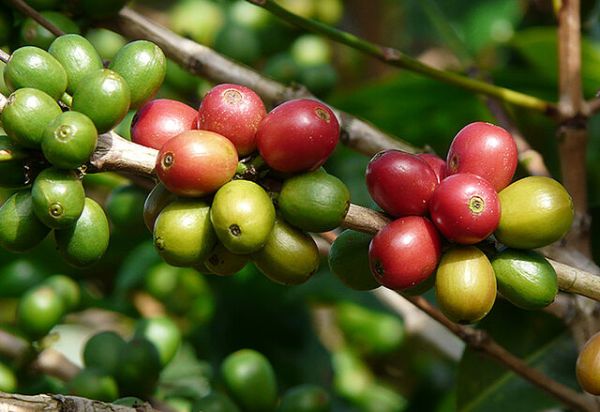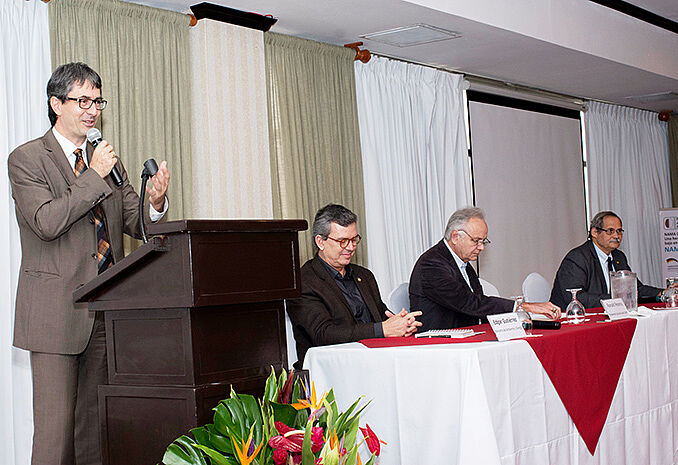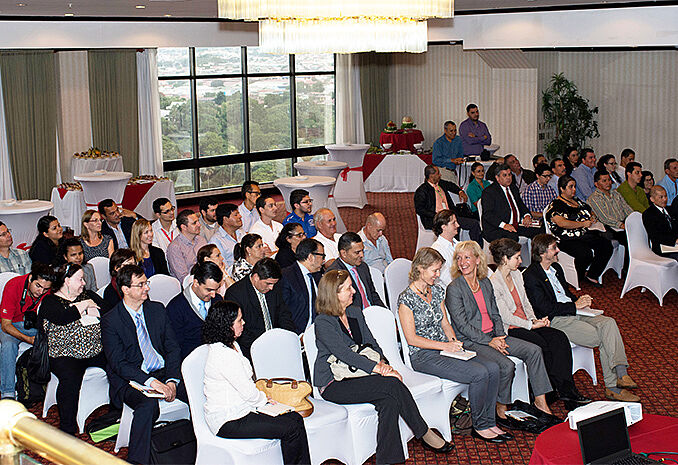Costa Rica officially launched the NAMA Support Project “Low-Carbon Coffee Costa Rica” for the NAMA Café de Costa Rica

On October 19th 2016, representatives from the Costa Rican Ministries for Environment and Energy (MINAE) and Agriculture and Livestock (MAG), as well as the National Coffee Institute (ICAFE) and the Deutsche Gesellschaft für Internationale Zusammenarbeit (GIZ) GmbH officially launched the NAMA Support Project “Low-Carbon Coffee”. The NSP offers technical and financial assistance to the Costa Rican NAMA Café de Costa Rica, which aims to support coffee farmers grow and process coffee efficiently and competitively, emit less greenhouse gases and become resilient to the effects of climate change.
The goal of the NAMA Café is to produce and process coffee in Costa Rica in a sustainable way that generates low greenhouse gas emissions. This objective will be achieved by strengthening technical and institutional capacities at the country level and at the same time facilitating the inclusion and coordination of the public and private sectors in national initiatives aimed at reducing emissions.
The NAMA Support Project “Low-Carbon Coffee Costa Rica” supports the implementation of the Costa Rican Coffee NAMA with financial and technical support. It will enable technical and feasibility studies, capacity-building measures, carbon audits and other awareness raising activities to take place. Additionally, the financial assistance will be used to offer favorable credits to facilitate the adoption of small-scale innovative technologies in the coffee sector, administered by the Central American Bank for Economic Integration (CABEI) and disbursed in collaboration with national financial institutions.
In five years, the support project “Low-Carbon Coffee Costa Rica” aims to reach up to 6,000 producers on up to 25,000 ha, who apply at least 2 of the promoted technologies and practices, and up to 50 coffee mills, which apply at least 2 emission-reducing technologies. It creates valuable best practice experiences, supports the creation of indispensable framework conditions, and kick-starts innovative collaboration projects at the country level that will continue to yield results beyond the NSP’s conclusion.
The NSP was developed by the “Programa ACCION CLIMA”, a project by the Federal Ministry of Environment, Nature Protection, Urbanism and Nuclear Safety (BMUB), and is implemented by the GIZ Costa Rica in collaboration with the members of the NAMA Café Steering Committee, which include MINAE, MAG, ICAFE, and Fundecooperación para el Desarrollo. The NAMA Facility approved the project in February 2015 and its implementation phase runs from January 2016 to February 2019 with a total funding commitment of EUR 7 million.

© GIZ

© GIZ
